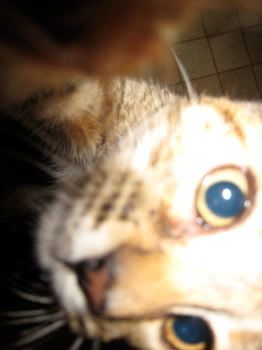 These are the walking dead
These are the walking dead: as many readers likely know, Warren Ellis recently posted about the zombification of the science fiction short-story print magazines, citing the dismal 2007 circulation numbers published in Gardner Dozois’s annual industry snapshot in
The Year’s Best Science Fiction.
Now, critics and pundits have been declaring the imminent demise of print science fiction for years—for decades. In fact, Gardner himself typically begins his summation with a wink and a nod to the reader familiar with such gloom-and-doom prognostications (“the world has not come to an end, the angel has not descended with the seventh seal, . . . and science fiction has subbornly refused to die, although strangely hopeful notices of its imminent demise have been put forth every year for more than a decade now.” I love this: thank you, Gardner). And we all know that the print magazines’ circulation has been contracting steadily for years. So what’s to write about here?
It’s personal, really: the 2007 numbers just flat out ambushed me. For a while now—more years than I realized, judging by the depth of my surprise—I haven’t given much attention to the short-story market, and reading the figures in Ellis’s post shocked me deeply.
Here’s what he reports:
Asimov’s: subscriptions down to 14,084 from 15,117, newsstand sales rose from 3,419 to 3,497. Not the huge overall circulation losses of previous years, but that’s still a thousand bodies going missing.
Analog: subscriptions down to 22,972 from 23,732, newsstand sales sank from 4,597 to 4,427. This is victory condition, in the face of posting seven- and eight-percent losses in the previous couple of years.
The Magazine of Fantasy and Science Fiction: subscriptions down to 12,831 from 14,575, newsstand sales sank from 3,691 to 3,658.
Reading this for the first time, my jaw dropped.
Asimov’s has a circulation of only 17,500?
When my jaw clacked shut again, I went to the bookshelf where my almost two decades of
The Year’s Best sit and pulled out the volume for 1996.
Way back when in 1996 (it doesn’t seem so long ago to me), Gardner wrote (in language very similar to that of the year before, and the year after):
It was a terrible year in the magazine market, even worse than last year—one of the worst years, in fact, since the collapse of the post-war SF boom wiped out magazines by the dozen in the fifties.
And a little later on:
Analog and Asimov’s Science Fiction both dropped to their lowest circulation figures ever. Analog lost about 9,000 in subscriptions and another 1,900 in newsstand sales, for a 14.8 percent loss in overall circulation. ASF lost over 10,000 in subscription and about another 2,300 in newsstand sales, for a 22.2 percent loss in overall circulation. . . . The M of F & SF lost about 5,300 in subscriptions and about another 600 in newsstand sales, for an 11.6 percent loss in overall circulation.
Jaw dropping again: a decade ago,
Asimov’s experienced a 22.2 percent loss
in a single year? I called up my desktop calculator and whipped through some numbers. (You most excellent people who are actually possessed of a math brain, please do check my figures if they tingle your spidey-sense. They’re rounded but should be basically accurate.)
- In 1996 Analog had a circulation of 73,649; by 2007, circulation had dropped to 27,399, a 63 percent decline.
- In 1996 Asimov’s had a circulation of 55,405; by 2007, circulation had dropped to 17,581, a 68 percent decline.
- In 1996 F&SF had a circulation of 51,370; by 2007, circulation had dropped to 16,489, a 68 percent decline.
It was the change between 1996 and 2007, obviously, that shocked me so deeply: the so-called Big Three's circulation gutted by two-thirds over the course of a decade. Going forward, if that pattern holds true over time, in another decade the digests will be gone, or will have readerships so small as to be functionally irrelevant as a “professional” market.
As Ellis goes on to say, in what seems to be typically inflammatory fashion:
The magazines’ various teams appear not to consider anything to be wrong. They’ll provide what their remaining audience would seem to want, until they all finally die of old age, and then they’ll turn out the lights. And that’ll be it for the short-fiction sf print magazine as we know it.
Ellis’s flame-on blogging tone never fails to grate on my nerves, but after I’d brooded on his post awhile, I had to wonder whether maybe this is a bit more than your Blogger 101 rhetorical style (the better with which to whip potential commenters into a petulant frenzy). Maybe what we’re hearing here is a little of the real anger that a writer, reader, and lifelong fan of s.f. feels at seeing the wasting away of something that has traditionally been, and should still be, be the vital, beating heart of the science fiction print genre.
Ellis ends his post with what has, in the present moment, become a predictable call to action, the turn to the Web:
It’s time now, I think, to turn attention to the online sf magazines. I personally live in hope that, one day, some of them move from net to print, and create a new generation of paper magazines. But, regardless, it’s time to focus on them — on what they do, how they generate revenue, and what their own future is.
Something we’ve heard before as well. I won’t try to write here about the vicissitudes of monetizing your web-based publication. We’ve seen the genre webzines come and go, fallen soldiers of the digital revolution. So far it’s an iffy proposition. But the day’s coming. If not tomorrow, then the year after the year after tomorrow . . .
So I reshelved my
Year’s Best: Thirteenth Annual Collection, shook my head sadly, and went back to work—in the flying-high world of comic books in the summer of 2008 (mark this moment, True Believers), where irrational exuberance in the highest degree surely reigns. And that’s where I would have let the matter lie if not for a post by John Scalzi at tor.com.
The next morning, scrolling through my RSS reader, I happened on Scalzi’s post about the numbers for his short story “After the Coup,” published online for the debut of tor.com in the middle of July.
At his blog
Whatever, Scalzi writes:
As of about 6pm this evening, Sunday, August 3, 2008, the “After the Coup” page on Tor.Com has been hit 49,566 times. Factoring out return visits, search engine spiderings and the like, I suspect the story’s been read (or at least visited) by about 40,000 readers.
Putting aside worrying the idea what a “hit” constitutes (for that, see the long, useful thread of comments after Scalzi’s post; and, incidentally, you’d think that tor.com would have a more sophisticated analytics package that sorted out visits [“hits”] from absolute unique visitors), the thing that struck me was Scalzi’s comparison of “After the Coup” to the Big Three circulation figures back in Ellis’s post:
Combined, their [Analog, ASF, F&SF] subscriber rolls add up to 49,887, a number which is coincidentally very close to the 49,566 hits “AtC” has gotten so far.
All that, Scalzi points out, in two weeks.
Two weeks!So these two posts—the Ellis, the Scalzi—started clanging against each other in my head. And as I set about trying to do my day’s work, a third set of figures came creeping into the mix: the number of absolute unique visitors (as distinguished from visits, or hits) to
my comics blog, which doesn’t approach anything like the incredible show of love for Scalzi’s story but, if the numbers hold true, will have exceeded the annual circulation of
F&SF in a matter of months (like I said, irrational exuberance, bigtime). Clang!
With all this clanging between my ears, I started thinking all sorts of wrongheaded and negative thoughts.
For instance, I said to myself: If you were a pro writer who got a fantastic gig like teaching at Clarion, say, how could you in good faith spend a week encouraging aspiring young writers to write science fiction stories? Wouldn’t that be tantamount to apprenticing them to a dying trade? “Son, I’m sending you off for the summer to begin your apprenticeship as . . . a barrelmaker.” (A lamplighter; a watercarrier; an oxherd; a bonepicker . . . )
Of course, every student in a workshop like Clarion is admonished, “Don’t do this for the money; do it for the love,” “Do this only if you absolutely cannot
not do it,” all that boilerplate stuff; but at the same time everyone knows, really knows, that serious writers, real writers, write to be professionally published. And "professional" means
money. More than that, to most people it means
making a living.
(I want to pause here to make sure that the Johnny Storms out there understand that I’m
not knocking Clarion. I’m a 1997 grad and will wholeheartedly recommend the Clarion experience to anyone seeking to make an entrée into the business. What I’m doing here is talking about the clanging in my head, mainly having to do with money, which, in fact, is the last thing a writing workshop like Clarion should be about. And yet . . . )
And yet, when the money a potential “pro” is sniffing after is so pitiful, and the readership so attenuated, this thing we do—whether it’s stories or novels—begins to approach hobby status. And if it’s a hobby, then it won’t attract the best and the brightest, because, as Heath Ledger’s Joker so rightly says, “If you’re good at something, never do it for free.” Words to live by.
(And here I go again, rattling the bars in the blogsylum . . . for zero free cents a word . . . all for the love, or another four-letter word, of it . . . )
So. That's that for the s.f. short story. I’ll let the economics of the s.f. novel go. It’s been done. For the curious and un-faint-of-heart, Tobias Buckell did a
survey.
As Ellis writes, “Here I am to ruin your day again.” But
flame on! hasn't ever been my intent here. I love science fiction and on one level or the other have made it my life for many years.
There was a golden moment I remember (uh-oh, nostalgia alert), a stretch of years from the mid-eighties into the early nineties, when I had sense that science fiction had won over the world. I remember being in a packed movie theater for a standing ovation, punctuated by wild, exuberant cheering, as the credits rolled after
Star Trek 4: The Voyage Home (1986)—and this wasn’t the midnight premiere for the few, the faithful; this was a Sunday matinee a month and a half into the film’s run. I remember how later in the decade William Gibson (look, Ma, “the man who invented cyberspace”!) was a household name, his marvelously geek-spectacled face on the cover of mainstream glossies everywhere. I remember people saying things like “The revolution’s over and we won.”
Granted, I’ve strayed here from the hard numbers to the anecdotal, qualitative, and personal. But that the market has changed, and not for the better, is a fact. Your agent or editor or publisher will tell you as much. Looking at my bookshelves, I have to ask myself if a work (to pick one at random) as relentlessly weird, dark, downbeat, uncomfortable, and brilliant as Paul Park’s Starbridge Chronicles would be published by a major publisher today. I have my doubts.
As the lj set would succinctly have me to say:
Mood: gloomy.
Someone tell me something to lift my spirits, please.
Tell me who’s carrying the fire.











 Congratulations to the winners of the 2008 Hugo Awards and the John W. Campbell Award for Best New Writer, announced last night at Denvention 3, the 66th World Science Fiction Convention.
Congratulations to the winners of the 2008 Hugo Awards and the John W. Campbell Award for Best New Writer, announced last night at Denvention 3, the 66th World Science Fiction Convention.



